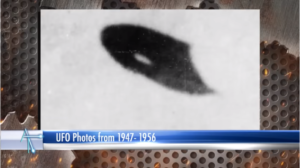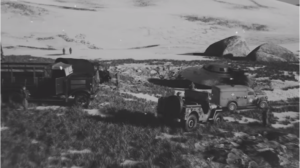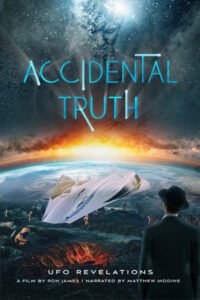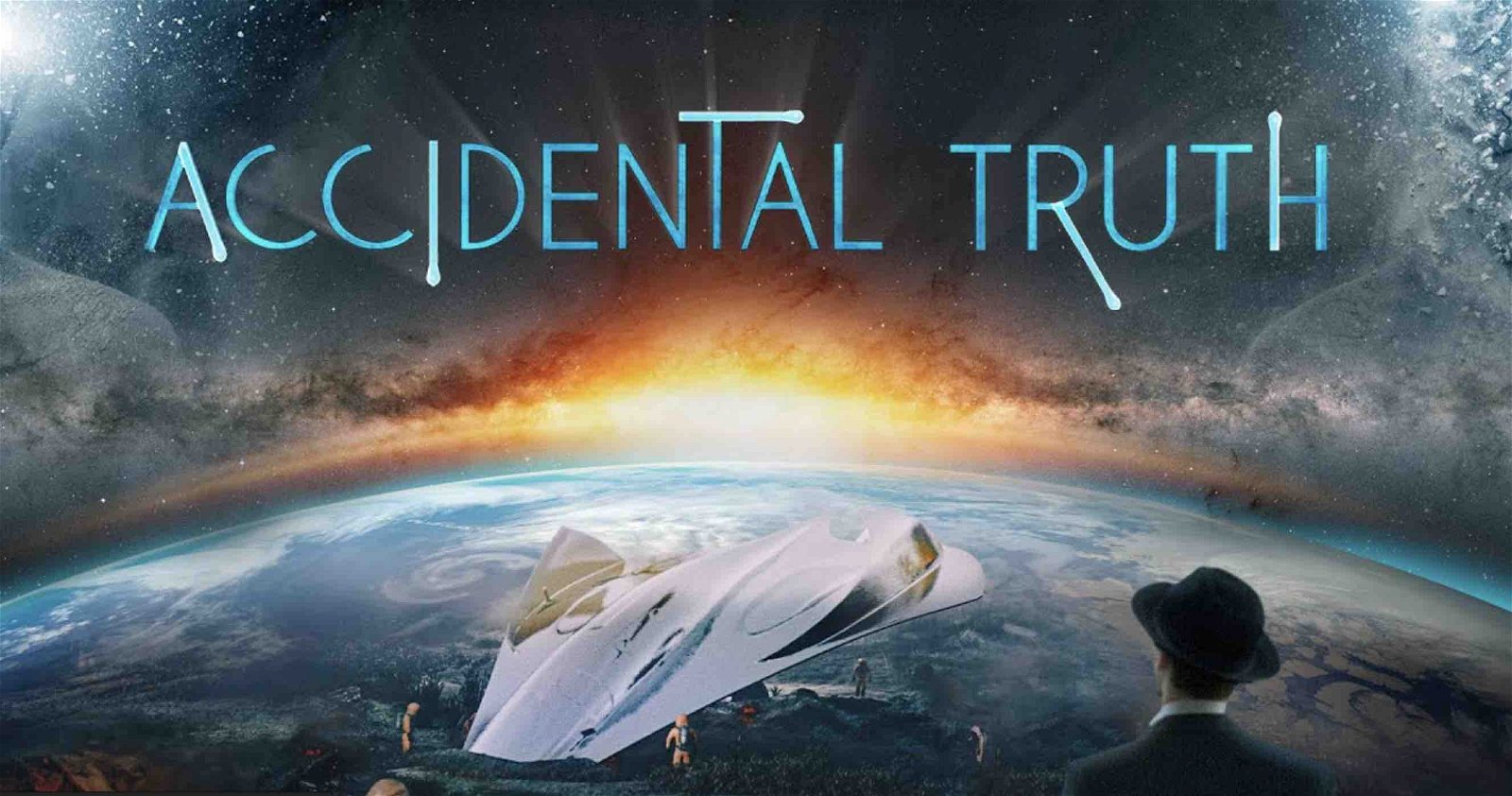It seems that every few months, those of us who follow the UFO topic are promised an exciting new documentary guaranteed to blow our collective minds. Although this ‘phenomenon’ isn’t unique to the present wave of UFO-centric films, TV shows, and podcasts, as nearly every UFO documentary I can remember dating back to the 1980s and 1990s worked to position itself as the definitive, seminal work on the subject, it has definitely increased in frequency since 2017.
Some have arguably gotten close to the mark, with filmmaker James Fox’s The Phenomenon standing out as a largely comprehensive account of a topic that has fascinated folks since at least the 1940s. In other cases, like J.J. Abrams’s multi-part Showtime series UFO, these documentaries can often feel like a retread of old news repackaged once again for an audience that, in many cases, is more versed in the material than the filmmakers themselves. Still, even that series has its high points and would not be wasted on someone who is new to the topic and wants to dive in with both feet.
So, at the risk of repeating a mistake made far too many times in the review of a new UFO documentary, I am pleased to say that the film Accidental Truth: UFO Revelations, which will be released on Tuesday, April 18th, may actually be one I would recommend to veterans and newbies alike.
First, there is enough generalized subject review here for someone new to the world of UFOs, more than enough to snicker at for the skeptics among us who find the whole thing silly but somehow can’t stop watching for fear they may actually end up missing the big reveal (or they just hate seeing someone else having a good time), and a whole lot of meat when it comes to the big enchilada that nearly all of us who find the topic to be a legitimate mystery worth investigating secretly wonder about: does the U.S. Government have crashed UFOs and maybe even bodies, and are the pilots of these vehicles something other than human?
The film’s presentation is also first-rate. Acclaimed actor Mathew Modine offers a narration that is both smart and haunting, keeping the viewer locked in as if the most important piece of information is about to be revealed at any moment. And, thankfully, more often than not, it pays off by doing exactly that.
Another key component that makes Accidental Truth highly watchable is the fact that the director interviewed nearly all of the film’s subjects himself. So, aside from the occasional piece of footage taken from other interviews and documentaries, the entire film has a fresh, consistent style to it that doesn’t make you feel like you are being jerked from place to place, as so many of these clip-heavy films do.
So, for those of you who actually want to find out what it is that we do (and don’t) really know about crash retrievals, alien bodies, and the concept of non-human intelligence, who wonder if those in power are lying about it or if this whole thing is all just modern mythology gone amok (or you need another good laugh at our expense), this is the documentary for you.
Either way, here is a summary of the three main segments in the film and my reactions to each.
Accidental Truth Part 1: From the 1940s to 2017
In the first of three loose “acts” in the Accidental Truth play, director Ron James does his best to bring the viewers up to date on the overall history of the UFO topic, at least since the 1940s, then up through the increasingly controversial revelations made in the New York Times in 2017. As someone who has followed this subject for some time, I found the bulk of this section as a review, with very little of what I would classify as new material. Still, it was thoroughly enjoyable, presented in a crisp, no-nonsense way, moved at a smooth pace, and did its best to summarize seven-plus decades of UFO history into about 30 minutes of screen time.


I also think this section will be particularly enjoyable for folks who have come to the UFO topic as a direct result of the 2017 revelations and the accompanying three videos, all of which have proven just as controversial and divisive as the original NYT story. Think of this part of the documentary as the summary given before a new season of a TV show, recapping what has happened in the first few seasons just so you are primed for what you are about to get in the new season. And, in this case, what you are about to get is the main course of the film and the meaning behind its name, “Accidental Truth: UFO Revelations.”
Accidental Truth Part 2: Crash Retrievals
While many UFO historians will point to pilot Ken Arnold’s sighting of a formation of high-speed objects near Mount Rainier, Washington, USA, on June 24th, 1947, as the genesis of the modern UFO wave, it is another incident from that same summer that has seemingly captivated the UFO curious since it was first talked about in an episode of the TV show In Search Of way back in 1980. That is the alleged crash of a UFO on a ranch near Roswell, New Mexico, including an official announcement by the Army of the vehicle’s retrieval followed almost immediately by a retraction, leading to nearly seven decades of more questions than answers.


In Accidental Truth, James does his best to cover the history of crash retrievals dating to an alleged crashed alien ship and bodies near Cape Girardeau, Missouri, USA, way back in 1941, which was six years before Roswell, then brings the subject all the way up to the present day. In many ways, it is a perfect introduction for the purported U.S. congressional UAP hearings that may or may not take place soon and may or may not involve “whistle-blowers” who will tell congress about legacy programs within the military-industrial complex that not only have debris from UFO crashes but may have intact craft and even alien bodies.
It is this part of the movie, its second act, where the director makes the strongest case I have seen for the reality of crash retrievals. Of course, like all such claims, it is purely anecdotal, with no physical proof offered. Still, the “same old UFO crash stories” are bolstered in this film with comments made by folks such as Chris Mellon, Lue Elizondo, Dr. Gary Nolan, and others who have positioned themselves in the public eye as those who know more than we do, based primarily on their access to classified materials the public simply has not seen or the direct testimony from people they know and trust who say they have worked in the crash retrieval programs.
In many cases, these “accidental truths” are muttered by folks like Elizondo or Nolan as halfhearted, off-mic afterthoughts that the film’s director captures and presents as direct hints that folks like Mellon, Nolan, et al., really do want to tell us outright that there is a reality to all this, and a truth we will all be learning about sooner rather than later. But they still can’t. At least, not yet, anyway.
Skeptics will point out–and rightfully so–that these are claims from folks who “supposedly” know more than the public and the idea that they are privy to things like high-quality images, advanced sensor data, and possibly even high-definition videos of unknown objects performing insane maneuvers that seem beyond the abilities of our most advanced aircraft is still an unproven one. Those same skeptics would further argue that if these supposed pieces of dispositive evidence exist and prove once and for all that UFOs are real and really do fly in incredible ways, that it isn’t something we can just take Mellon and Elizondo’s word for, but it is something we would need to see for ourselves, military classifications be damned!
While I am still firmly in this camp as one who believes we can’t just take Mellon or anyone else’s word for it that evidence exists pointing to a non-human intelligence behind at least some UFO cases, this documentary does its best to show exactly that; UFOs are real, and a non-human intelligence is at the proverbial wheel. And it is done in as compelling and concise a way as I have ever seen.
Accidental Truth Part 3: “They”
In the final act of his documentary film, titled simply “They,” James makes his best pitch for the idea that UFOs, at least some of the more incredible ones, are indeed vehicles of non-human origin.


In this final segment, he digs deep into his wealth of knowledge on the subject garnered during his years as the Director of Public Relations for the Mutual UFO Network (MUFON) and the founder of MUFON Television, then caps it all off with the pending congressional hearings where the truth behind crash retrievals and crafts with non-human occupants may finally come to light. Again, his case is bolstered by some “accidental truths” muttered by his interview subjects that seem to show they know and have talked to folks who are indeed about to tell congress about their direct knowledge and experience working on what Dr. Eric Davis once famously termed “Off-world vehicles not made by human hands.”
Once again, James’ film doesn’t necessarily present any hard proof of these claims. Instead, Accidental Truth notes how people who seem to have very little to gain and quite a bit to lose are now saying that they know, for a fact, that people who claim to have worked on crashed UFOs made by a non-human intelligence will give testimony to congress detailing that work.
Of course, it may all turn out to be hearsay and rumor. Or even if it is real, we may never even learn who testified about this type of knowledge to congress or what their testimony entailed. But whatever is about to happen in the halls of congress, James does a great job building anticipation for the idea that these types of discussions will be had very soon. And suppose there are indeed legacy crash retrieval programs hidden within the ultra-secret recesses of government or tucked away within some of the world’s largest defense contractors. In that case, the truth about those programs may soon become known, accidentally or not.
Christopher Plain is a novelist, comedian, and Head Science Writer at The Debrief. Follow and connect with him on Twitter, learn about his books at plainfiction.com, or email him directly at christopher@thedebrief.org.


The promotion materials for the film show a cast list of Congressman Tim Burchett, Ralph Blumenthal, Lue Elizondo, Dr. Michio Kaku, Dr. Garry Nolan, Col. John Alexander, Christopher Mellon, Richard Dolan, Dave MacDonald, Nick Pope, Paul Hynek, Don Schmitt, Mike Bara, Katie Griboski (Paige), Melinda Leslie, Elizabeth April, Cheryll Jones, Danny Sheehan, Jimmy Church, Richard Lang, James Fox, and director Ron James himself.

